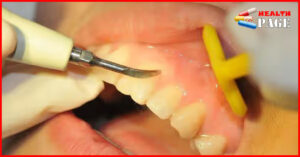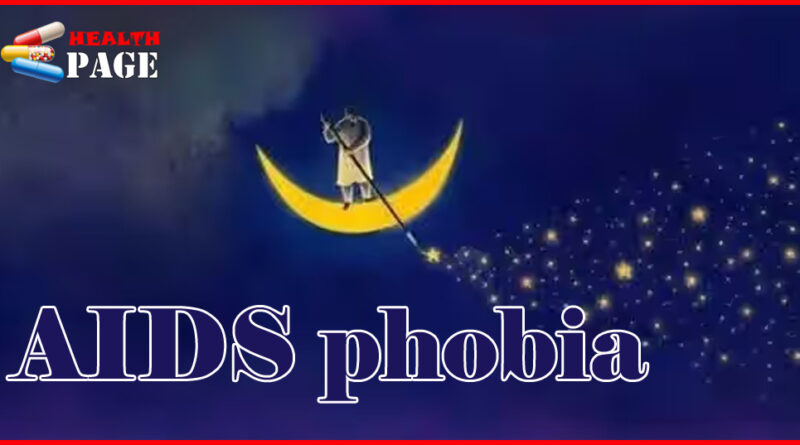Did you know that AIDS phobia is actually a mental illness?
As people’s attention and fear of AIDS continue to increase, a large group of people – people with AIDS phobia ( acquired immune deficiency syndrome phobia, hereinafter referred to as “AIDS phobia”) – have quietly emerged. Psychologists point out that AIDS phobia is a psychological disorder characterized by a strong fear of AIDS, accompanied by anxiety, depression, compulsion, hypochondria and other psychological symptoms and abnormal behaviors.
The main manifestations of AIDS phobia are: mental depression , fear and anxiety, severe insomnia, weight loss and general discomfort, and inability to relieve oneself. Some patients feel extremely distressed when talking about it, and suffer from insomnia, palpitations , cold sweats, dizziness and other symptoms; some openly claim that they have AIDS, feel guilty, and mobilize their families to undergo STD tests; some are stubborn and skeptical of negative results, always believing that the test is inaccurate or that the existing reagents cannot detect their virus. Some of these patients have engaged in high-risk behaviors, while others have not. Their fears are entirely derived from their own subjective imagination and associations.
AIDS phobia can generally be divided into the following types:
Hypochondriasis type
This type is the most common. It is mainly manifested in repeated examinations, seeking medical treatment everywhere, not believing the test results, even the negative results from authoritative institutions, and repeatedly doubting every link of the test process afterwards. They are stubbornly worried or firmly believe that they have been infected with the HIV virus; they are very sensitive to symptoms similar to AIDS. For example, if they have fever, general weakness, rash, swollen lymph nodes , they think they have AIDS, and they are extremely afraid, as if they are facing a great enemy, and they are completely desperate.
Compulsive type
This type is more common. The main manifestation is the fear of being infected with AIDS, and trying to avoid and escape various situations where they may be infected, accompanied by repeated washing behaviors, such as washing hands, taking a bath, and washing clothes. They know that these thoughts are completely unnecessary (some people think they are necessary), but they are unable to control or get rid of them, and are accompanied by strong inner conflicts, great distress, and serious impairment of social functions. In severe cases, they need to wear gloves or masks to complete normal daily activities, and even stay indoors all day.
Fear type
The core symptom is fear. It mainly manifests as fear of AIDS and all things and places related to it. When exposed to the feared things, there will be symptoms of autonomic nervous system disorders such as panic, sweating, muscle tension, and tremors. This type of patients generally do not seek medical treatment repeatedly or check everywhere, but avoidance and escape behaviors are more obvious.
Anxiety type
Mainly manifested as nervousness and irritability when thinking of or seeing the word “AIDS” or related reports about AIDS, often in a state of high alert, always worried about being infected with AIDS, and may be accompanied by various physical symptoms, such as restlessness, pacing back and forth, sighing, etc. This type of patient generally does not seek medical treatment repeatedly, go around for examinations, and has no obvious avoidance and escape behaviors.
Depressive type
Mainly manifested by gradual low mood, loss of interest in the outside world, poor diet and sleep, low self-esteem, frequent regret and blame for oneself, pessimism and despair about the future, loss of confidence, and self-harm and suicidal ideas, some of which will put into action.
Psychological burdens
In real life, when people are under great work pressure, have heavy psychological burdens, and are emotionally tense. They tend to get sick more easily, mainly because the autonomic nervous system affects the immune system. Similarly, when AIDS phobia occurs, the autonomic nervous system will be disordered. Then the function of the immune system will be disordered, resulting in various stubborn diseases: (1) chronic pharyngitis, oral ulcers, irritable bowel syndrome , colitis, chronic gastritis; (2) nervous headaches , dizziness, insomnia, dreaminess, sweating, sweating, night sweats , fear of cold, fear of wind; (3) depression, anxiety, fear, obsession, hypochondriasis, cardiac neurosis, gastric neurosis , etc.; (4) stiff neck muscles, migratory joint pain, phantom limb pain , susceptibility to colds, and low immunity; (5) poor memory, slow reaction, and neurasthenia .
The psychologist of the sanatorium pointed out that fear has certain positive significance. Which can help people strengthen their defense and stay away from danger. The same is true for patients with AIDS phobia. Moderate fear can enhance their learning of AIDS knowledge and improve their self-protection awareness. But excessive fear will affect their normal study, work and life. To this end, fear can be eliminate from the following aspects:
1. Establish a correct understanding
First, we must realize that fear of AIDS is not necessarily a bad thing. After experiencing the fear of AIDS, we can understand satisfaction, learn to cherish, and no longer indulge in our own behavior. Second, we must realize that fear is a normal psychological reaction. It has its own operating rules. Deliberately looking up information and going to the hospital for repeated examinations will form a vicious circle. Fear and anxiety only represent your emotions, and do not mean that the content of your fear is the fact.
Third, believe in the results of medical tests. The results of HIV antibody tests are the most powerful evidence and the only diagnostic standard. After the window period, a negative antibody test can completely rule out the possibility of infection. At present, the HIV virus detection technology methods at home and abroad are very accurate and reliable. Once the test shows no infection, HIV infection can be rule out for sure . Don’t continue to be afraid and suspicious.
2. Regulate your own behavior
First do not search randomly on the Internet. Do not add random friends, and obtain authoritative information from standardized places. Such as AIDS phobia assistance stations, the official website of the World Health Organization , the official website of the Centers for Disease Control and Prevention, etc. Second, constantly strengthen positive information and reject negative information. Positive reinforcement must ensure sufficient time and quantity. You can constantly give yourself positive psychological hints; negative information on the Internet will cause secondary psychological trauma to AIDS phobia , aggravating psychological problems, and must be firmly reject.
3. Don’t believe in symptoms
People who are afraid of AIDS often compare their own symptoms with those of AIDS. It is true that a few people will experience acute symptoms after being infect with AIDS. But the prerequisite is that they are infect with a large amount of HIV. However, such cases are very rare in clinical practice. From a medical point of view, symptoms cannot be use as a criterion for determining whether or not an infection has occurred. Testing and diagnosis are the gold standard. Almost all people who are afraid of AIDS have various similar symptoms of infection. But the final blood test results are more than 99% negative. Which is enough to show that the symptoms are not credible. Don’t think of symptoms as AIDS for no reason.
4. Try to divert your attention
Diverting your attention is not escaping, but giving our mind a buffer. Reconstructing the focus of mental and ideological activities can gradually reduce anxiety and fear. You can also learn self-relaxation methods (such as deep breathing relaxation, muscle relaxation, exercise relaxation, etc.). Ultimately make the so-called symptoms healed without treatment .
5. Seek professional help
If the fear is so severe that you can no longer work or live normally. Or even have a tendency to self-harm or commit suicide, please seek help from a psychologist or psychiatrist. The psychologist will conduct appropriate psychological crisis intervention during the stress stage of AIDS phobia. Take relevant medications if necessary.
Doctors point out that AIDS phobia is not scary, and relevant drug treatment combined with psychotherapy will achieve better results.



Pingback: Let's know some major Nasal Diseases
Pingback: Redness vs. Induration in Tuberculosis Skin Test: Key Differences